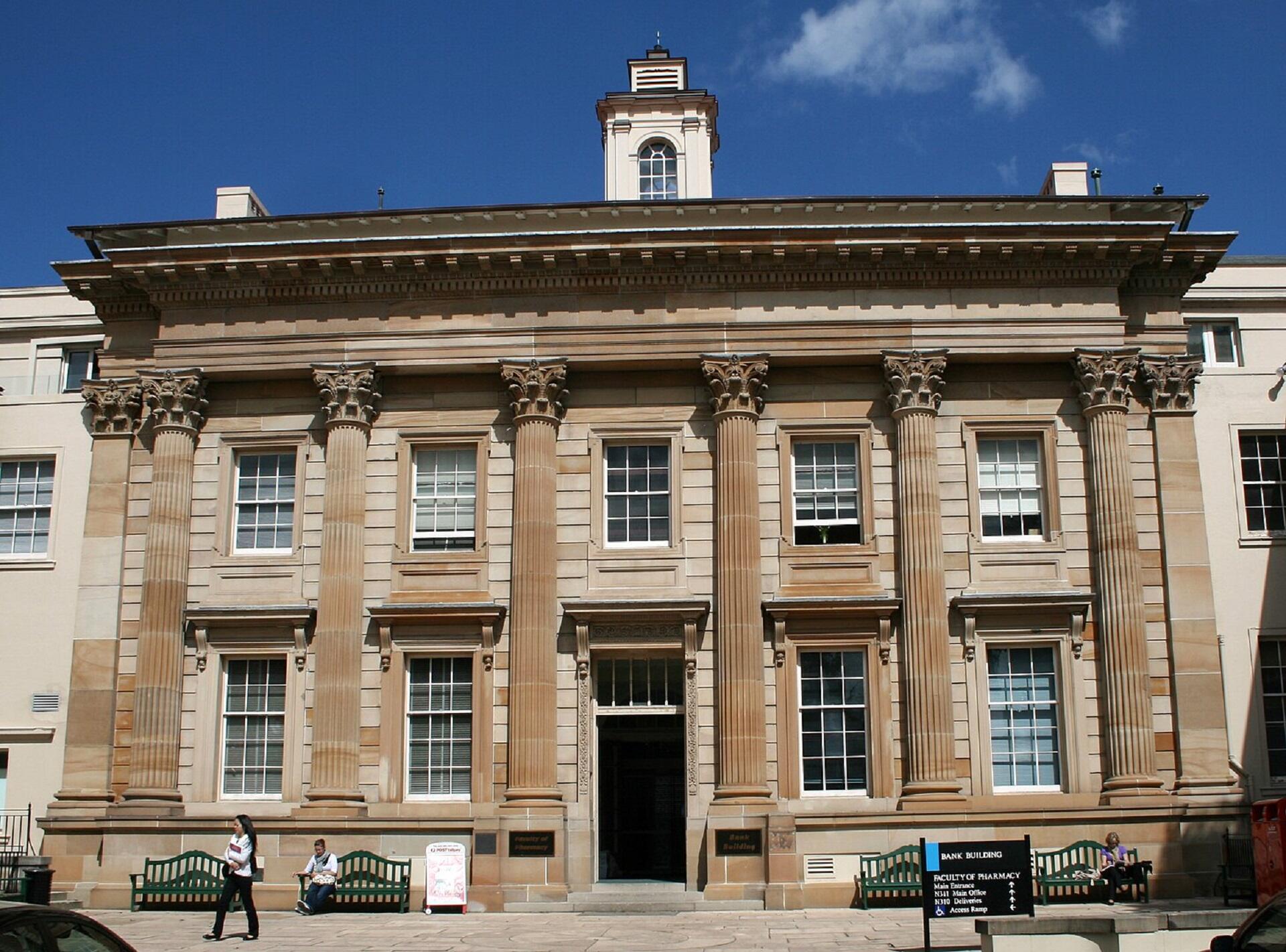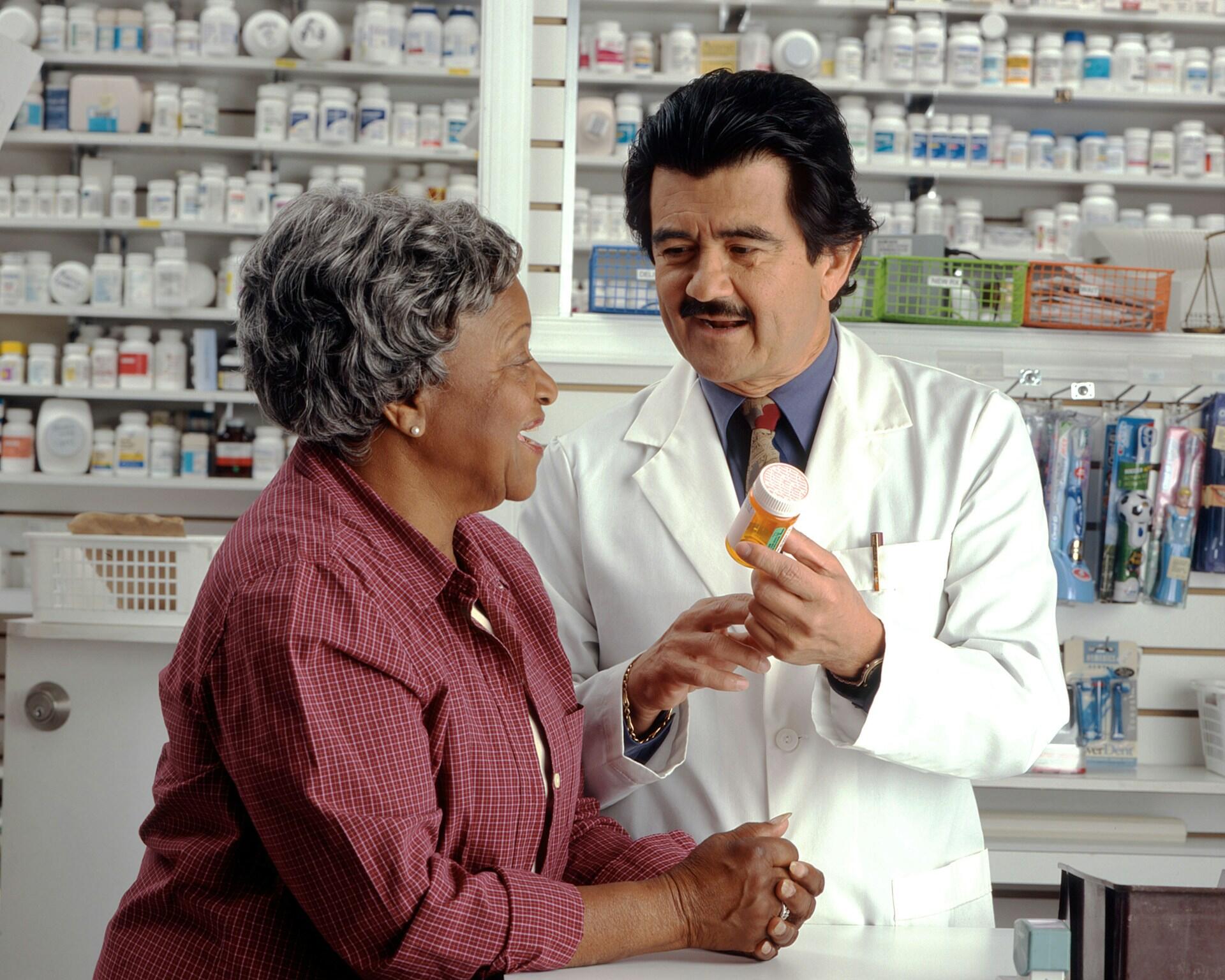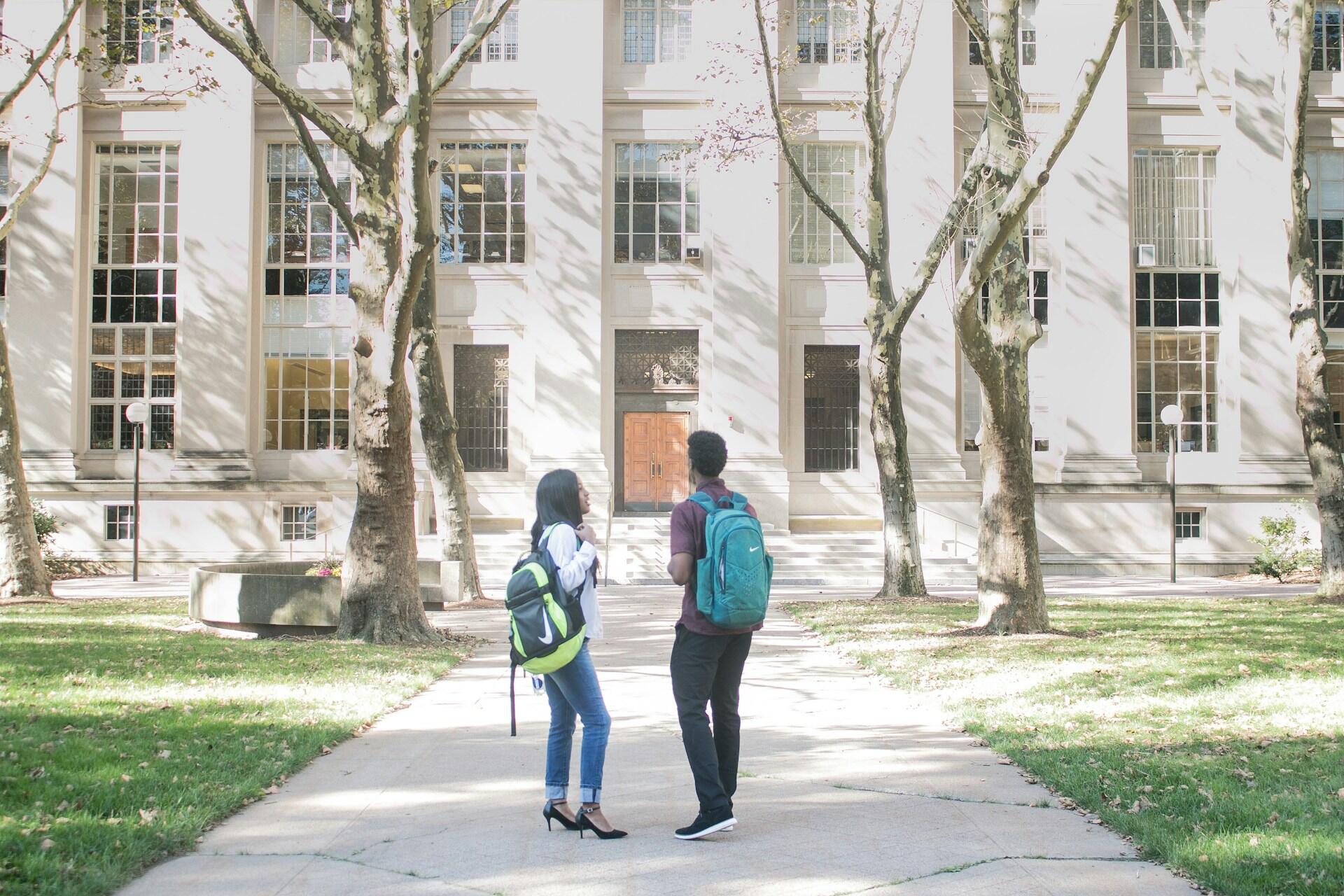Pharmacy studies revolve around the making and dispensing of medicines, and their safe usage. Australian universities offer degree plans aimed at preparing undergraduates for public-facing, medicine-related work. The University of Sydney offers the best pharmacy degree plan, but many of our higher education facilities have comparable programs.

How to Become a Pharmacist

Pharmacists have been around since at least 2600 BCE, according to Ancient Babylonian records. Back then, they were called apothecaries. They mixed and dispensed medicines, typically after diagnosing the patient.
Today, pharmacists' roles seem rather limited, in comparison. Our medicines come pre-packaged, so these professionals have little need for mortars, pestles, and tiny measuring implements. The chances of a pharmacist getting a prescription wrong are slim, but it happens, sometimes.
That's why modern medical standards insist on extensive training for pharmacists, even though the work often seems like sales clerking. The customer hands over their prescription(s), and the person behind the counter dispenses the drugs. Money changes hands, and the transaction is over. Or is it?
Pharmacists educate their clients, and monitor them for signs of illness.
They advise patients on their drugs' properties, and answer questions their clients might have.
They also keep records of the drugs they dispense, and question prescriptions, if necessary.
A Bachelor of Pharmacy degree won't train you in customer service. However, it will arm you with the science and skills to do this work safely and effectively. A Bachelor's degree in chemistry studies, with a pharmacy specialisation, is how to become a pharmacist.
Preparing for a Bachelor of Pharmacy can be made simple with the help of a chemistry tutor online from Superprof. Visit Superprof and find a long catalogue of local and online chemistry teachers in Australia.
Pharmacy or Pharmacology?
People get confused over these two distinct fields, and often use these words interchangeably. Both pathways spring from a common root, as noted by the 'pharma-' prefix. However, pharmacists' work is very different from what a pharmacologist does:
Pharmacist
- a public-facing job
- dispenses medicine according to prescriptions
- informs clients of medicines' properties
- listens/responds to customers' concerns
- advises customers on when and how to take medicines
Pharmacologist
- does not work with the public
- formulates medicines
- studies medicines' properties
- researches drugs' effects on the body
- may advise authorities on medicines
Taking a pharmacy course does not exclude you from doing more far-reaching pharmacology work. However, you may have to upgrade your qualifications.
In that sense, your pharmacy degree is like other chemistry degrees that might interest you. It gives you the flexibility to pursue other avenues of study.

Top Universities for Pharmacy Degrees
To guide our research into Australia's best pharmacy degrees, we turned to the university ranking platform EduRank. It informed us that the University of Sydney is #1 for pharmacy studies. QS World University Rankings places it in the 18th spot worldwide (2025 edition) for this discipline.
This Honours program is actually an extended course. It stretches from Bachelor of Pharmacy (hons) through Master of Pharmacy Practice. It is a five-year, full-time program, that includes compulsory intern training. You will also meet your supervised practice requirement with this course.
The potential risks of pharmacy work mandates regulation and oversight of pharmacy training.
This study program incorporates clinical practice, so students can have hands-on experience in their field. Unlike environmental science degree programs, pharmacy students won't conduct research in commercial pharmacies. All their training happens on campus.
Pharmacy Studies at The University of Queensland (UQ)
This is one of Australia's top schools, by any measure. In pharmacy studies, it ranks #5, and #30 worldwide, according to QS. It's the longest program we encountered, with the most extensive supervised clinical track.
This school's program takes a slightly different tack. It prioritises patient-centred service, without sacrificing all the technical knowledge you need to do your job effectively. This school's training suite includes all the necessary trappings - labs, mock pharmacies, and dispensaries, to deliver a complete learning experience.
In all, these are the aspects of UQ's pharmacy study program we liked, with one possible strike against it:
Monash University Pharmacy Course
Monash is second in Australia for pharmacy studies, and #2 in the world (2023), according to QS. Like the University of Sydney, its program comprises a Bachelor of Pharmacy (hons) / Master of Pharmacy. It's a full-time course, but it takes only four years to complete.
That doesn't mean you get less learning in that time. The course contains many of the same elements, including academics, internships and process verifications.
StEPs is Monash's name for its pharmacy internship program.
Beware that you must submit to a background check before you can start this program's phase.
Any pharmacy degree program will require internship and supervised training, as well as background checks. Schools might give these programs unique names, but they all amount to the same procedures.
You'll find the same educational template for pharmacy degrees across Australia's Top 10 unis for this degree:
| 🏫School name | 📍Location | 🎓Available programs | ⌚Part-time available? | 👩🎓Honours? | 📆Course duration |
|---|---|---|---|---|---|
| University of Sydney | NSW | 1 | No | Yes | 5 years |
| Monash University | Victoria | 2 | No | Yes | 4 years |
| University of Melbourne | Victoria | 1 | No | Yes | 5 years |
| University of Queensland | Queensland | 1 | Yes | Yes | 7.5 years or part-time equivalent |
| University of New South Wales | NSW | 1 | No | No | 5 years |
| University of Adelaide | South Australia | 3 | Yes | No | 3 years full-time or part-time equivalent |
| University of Western Australia | Western Australia | 1 | No | No | 4 years |
| Flinders University | South Australia | 1 | Yes | Yes | 4 years or part-time equivalent |
| University of South Australia | South Australia | 3 | No | Yes | 4 years |
| University of Newcastle | NSW | 1 | No | Yes | 4 years |

Pharmacy Course Curriculum
Pharmacy studies touch on biology and chemistry, as well as anatomy and physiology. You will also master the social side of pharmacy work: develop communication skills, and management techniques. Internships and supervised training take a lot of course hours, too.
Unlike other chemistry degree plans - say, for a chemical engineering degree, pharmacy studies course structure leaves little room for electives. This is a targeted education pathway, a program complete onto itself.

Pharmacy students will have a bit of leeway in their career choices, as we describe in this article's last chapter. However, their academic path leaves no wriggle room. These courses' curriculum breaks into four parts. (Note that different schools may give these areas different names, or not name them at all.)
Fundamental science

- chemistry
- biochemistry
- physiology
- pharmacology
Pharmaceuticals

- drug formulation
- drug manufacture and packaging
- drug absorption and distribution
- physical drug responses
Pharmacy practise

- ethical and legal aspects
- sociocultural aspects
- community health aspects
- pharmacist behaviours
Integrated learning

- knowledge of diseases
- study of disorders
- clinical drug use
- pathophysiology and rational design
This curriculum is already loaded with valuable information to ensure a successful career as a pharmacist. Adding supervised practice and internships make this degree plan a complete educational journey, with no electives to round it out.
Bachelor of Pharmacy Admissions Requirements

As specialised a degree as a Bachelor of Pharmacy with honours is, you can expect a high bar for entry into such a program. Unlike Food Science degree plans that demand no prerequisites, pharmacy learning program admissions requirements are many.
Applicants' Australian Tertiary Admission Rank (ATAR) must be 90 or higher to qualify for consideration. Candidates' high school transcripts must show passing marks in Maths and Advanced Mathematics.
Biology and Chemistry classes are favoured, and Physics courses are recommended. Demonstrated English language ability is also a requirement.
Looking for chemistry tutors for reinforcement? Superprof is a platform that allows chemistry students to find local tutors quickly. If you live in Sydney, search for "chemistry tutors sydney" for example, followed by "Superprof," and you'll have access to chemistry lessons near you!
International Students
Learners from abroad may prove their English capability through official language exams such as IELTS and TOEFL. They must do so in addition to presenting their International Baccalaureate (IB) transcript, which should reflect high marks in English studies.
Their IB must further detail successful completion of Maths and Science courses, on par with Australian students' requirements.
Inherent Requirements
The nature of pharmacy work demands that program applicants embody specific traits. This requirement applies to domestic and international students alike:
- cognitive abilities and learning capacity
- behavioural stability and adaptability
- ethical, professional behaviour
- awareness of legal and professional standards
- physical ability to meet the needs of practice
All students will submit to a background check. Australian law dictates that anyone working with children and other vulnerable populations must not hold positions that could lead to harm. The nature of pharmacy practice demands that professionals in this field must be beyond reproach.
Bachelor of Medicinal Chemistry Careers
Our featured pharmaceutical leader started his research career in veterinary medicine. He soon became interested in adrenaline's effects on the heart, which led to him formulating a medicine to neutralise those effects. His beta-blocking formula became the world's best-selling drug.
He outdid himself a few years later, when he formulated the acid-neutralising drug we know as Tagamet. Sir Black worked in laboratories; he never tended the counter in any pharmacy - commercial, or hospital.
That's the type of work your pharmacy degree permits, but it also paves the way to research. So, a career in research and discovery, as James Black forged for himself, isn't out of the question. Should those three options not suit you, consider work in these related fields:
- Medical sales representative
- toxicologist
- medical product development
- medical science liaison
- regulatory affairs (government post)
- physician's associate
- clinical trial operator
- drug manufacturing / quality control
- laboratory technician
- medical researcher
It might seem that a Bachelor of Pharmacy provides limited career opportunities, rather like a degree in Forensic Science. Admittedly, these are both narrow fields of study, but they pave the way to satisfying, rewarding work, and greater opportunities.
You can always dabble in pharmacology. After all, your medicinal chemistry courses prepare you for research, as much as they do customer service.
As you can see, polishing and reinforcing your chemistry knowledge is fundamental if you would like to have a Bachelor of Pharmacy. Finding a science tutor to help you review your studies in chemistry is now easier than ever: visit Superprof, type in "lessons in chemistry review" and you will have access to a long catalogue of local chemistry tutors ready to start lessons with you.
Summarise with AI:















